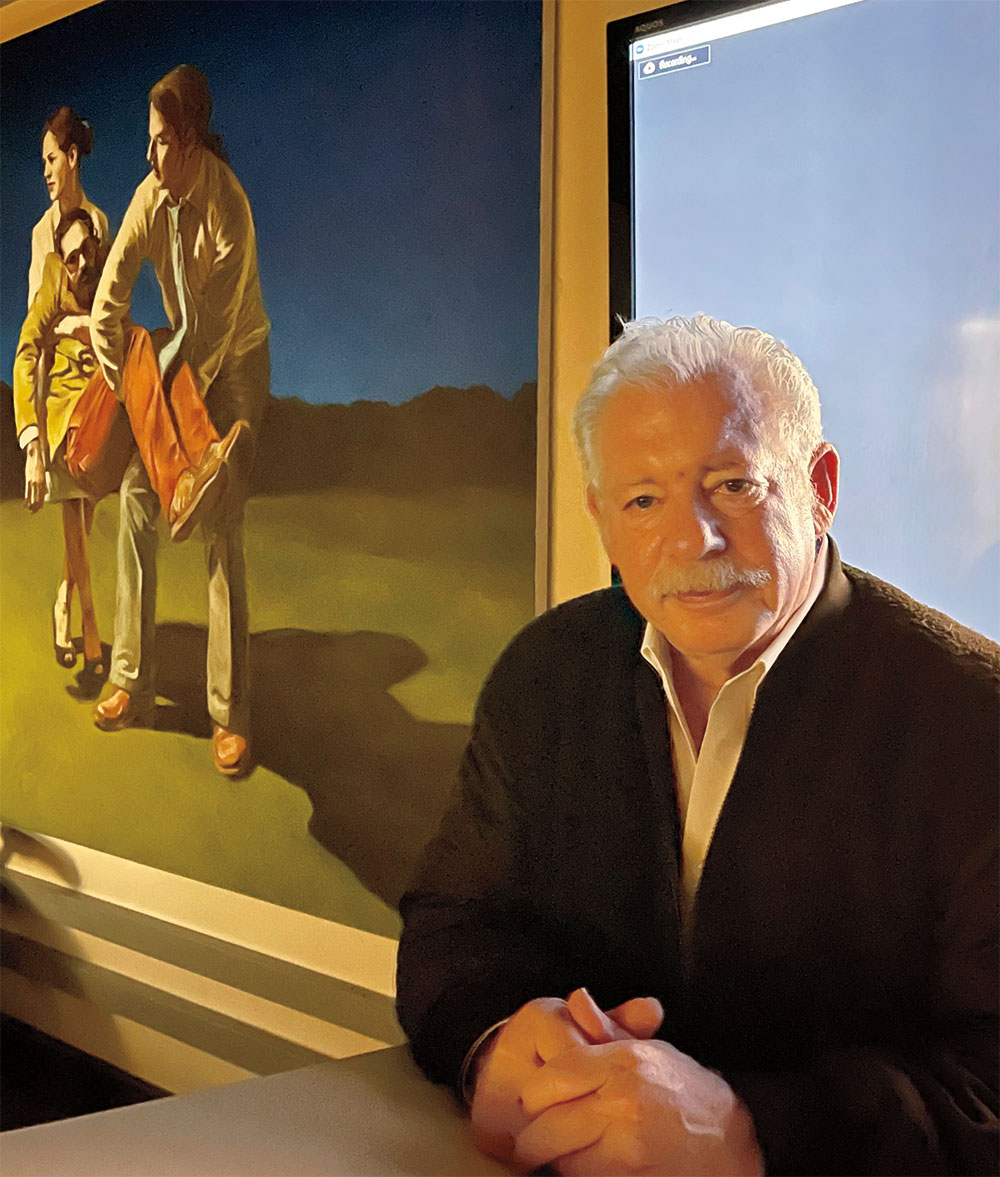
Andrew Meyer ’71, P’08
Andrew
Meyer ’71, P’08
The Producer
Meyer jumped into the music industry feet first after graduation, relying on his experience from the Bucknell Concert Committee and chutzpah. After working with rock legends such as George Harrison and Peter Frampton, he became, with zero experience, a producer of such iconic films as Fried Green Tomatoes and The Breakfast Club (giving John Hughes his first directing credit). Since 2004, he has taught film and TV at The Savannah College of Art and Design.

Photo: Julianna Mello Da Rosa Goulart

What drew you to producing rock shows in the 1970s?
a. A chance to hang out with friends.
b. The love of the music and musicians.
c. Premium snacks in the green room.
b. The love of the music and musicians.
c. Premium snacks in the green room.
I really enjoy bringing people together, whether through music or film, creating a one-of-a-kind experience that everyone can enjoy and hopefully learn from along the way.

What was one of the toughest challenges of your entertainment career?
a. Becoming a movie producer with no experience.
b. Booking bands for college campuses.
c. Making sure the musicians had their favorite color of M&M’s.
b. Booking bands for college campuses.
c. Making sure the musicians had their favorite color of M&M’s.
Becoming a movie producer with no experience was really hard. There was so much money involved, and everyone was under a lot of pressure, especially me, because I had never done it before. Luckily, the first script I read was The Breakfast Club, so everything worked out OK.

What advice would you give to those trying to break into film producing?
a. Know how to market what you’re selling.
b. Find the best script possible and workshop it until it’s perfect.
c. Look beyond the A-list stars.
b. Find the best script possible and workshop it until it’s perfect.
c. Look beyond the A-list stars.
Instead of writing your own script, find a book, podcast or anything, really, and acquire the rights. Two good things happen from this: You can’t be fired from the project because you control the rights, and you can hire yourself to adapt the material because you own it.
4.
Why did you produce Bring on the Night, about Sting leaving The Police and starting a new band?
a. Sting wanted a documentary, not more music videos.
b. No one had documented the making of a band like this.
c. The record company thought it would get some great new music.
d. All of the above.
b. No one had documented the making of a band like this.
c. The record company thought it would get some great new music.
d. All of the above.
Sting wanted to document the breakup of The Police and create a new sound with a jazz band. Bring on the Night won a Grammy, which, of course, made everyone happy.

Which of these films you produced has the greatest soundtrack?
a. The Breakfast Club (1985)
b. One Crazy Summer (1986)
c. Birdy (1984)
b. One Crazy Summer (1986)
c. Birdy (1984)
The Breakfast Club soundtrack became iconic. John Hughes discovered Simple Minds (“Don’t You [Forget about Me]”) in the U.K. before anyone had heard of them.

How did Bucknell prepare you to work in the creative arts?
Choosing Bucknell is one of the best decisions I ever made. As soon as I arrived, I found that the faculty and the administration tried to help me achieve whatever I was trying to do, including the freedom to produce concerts and create the Bucknell Concert Committee. Bucknell gave me a lot of confidence that I could succeed if I worked hard and came up with smart, creative ideas. I am a grateful graduate.
